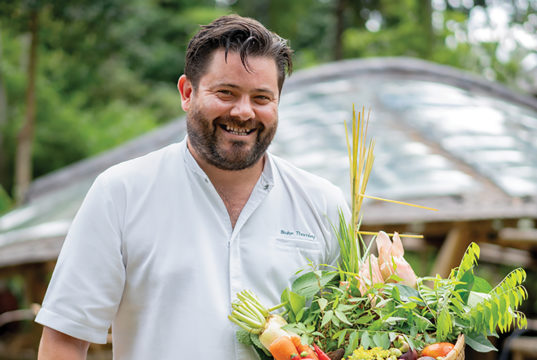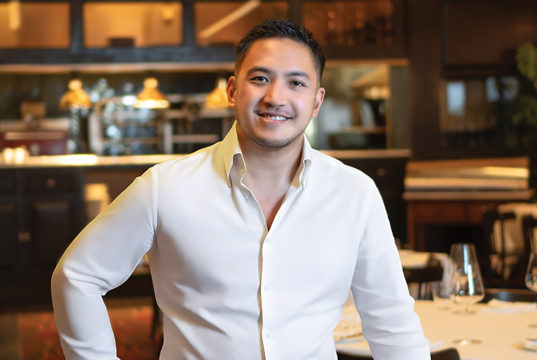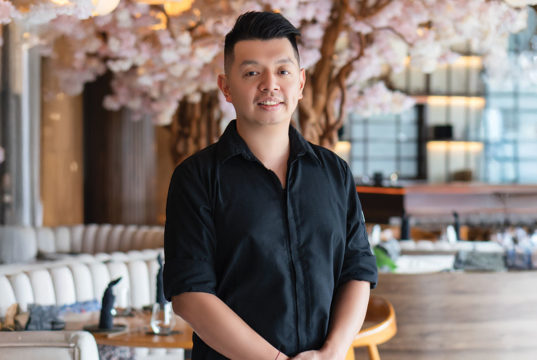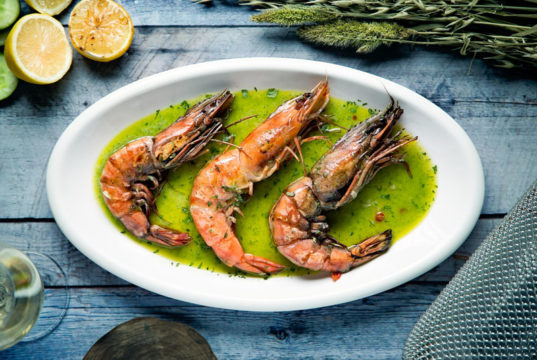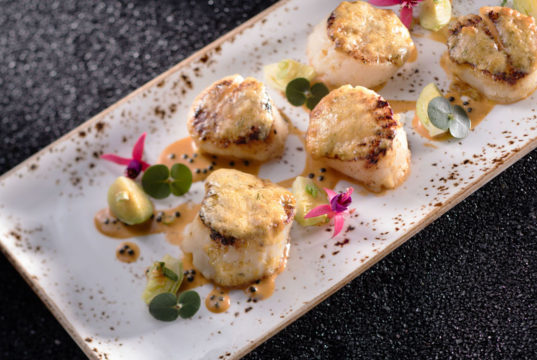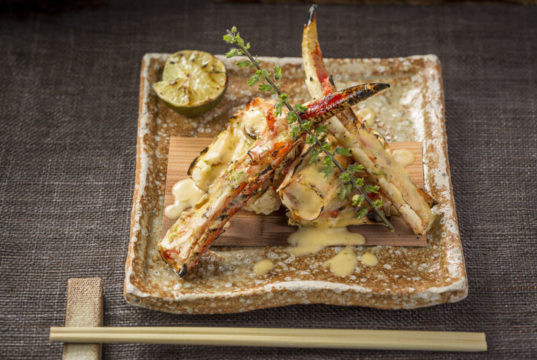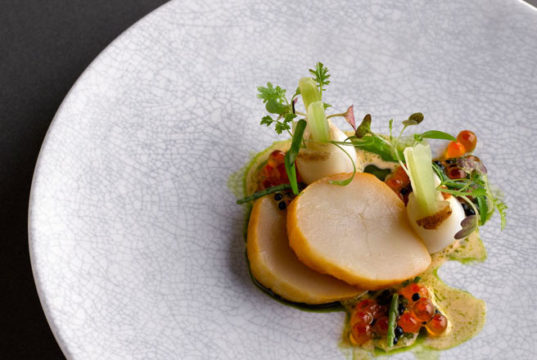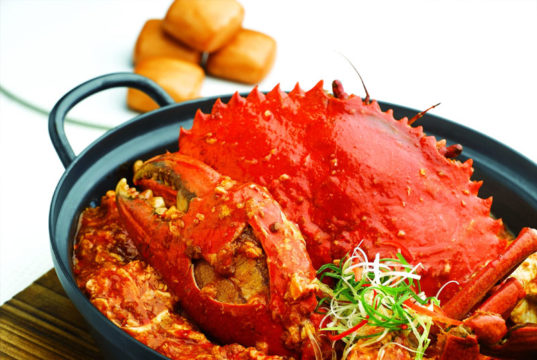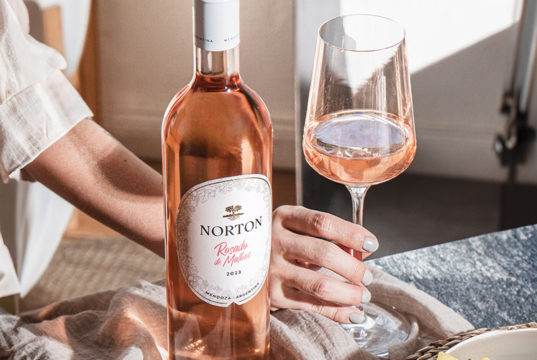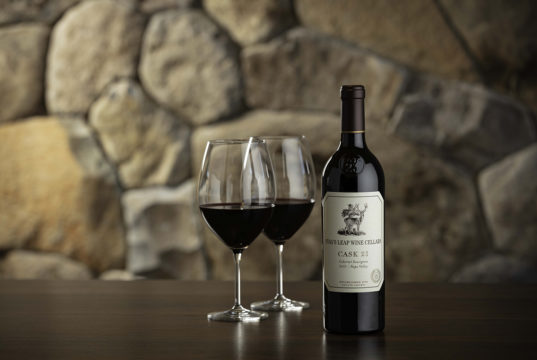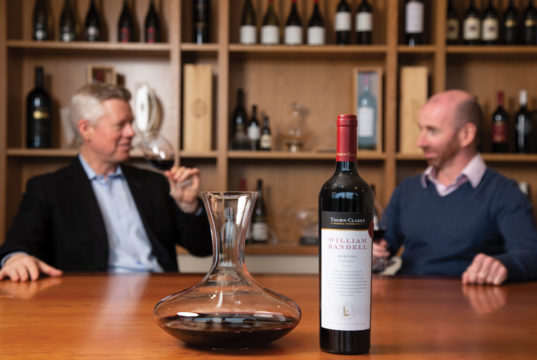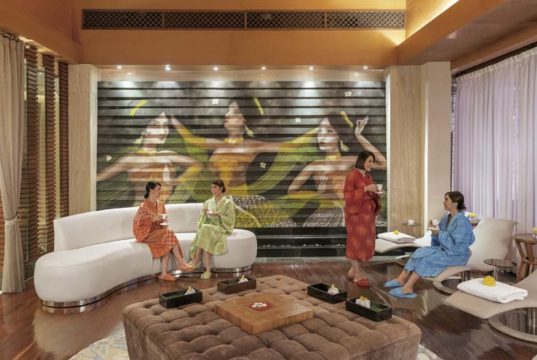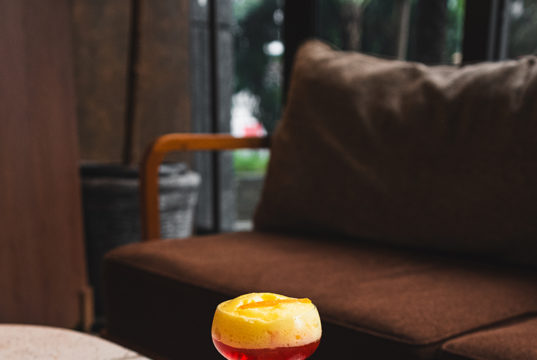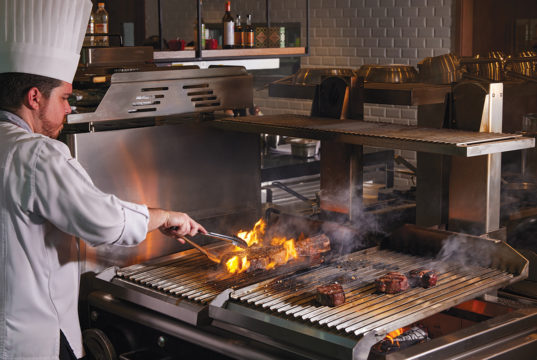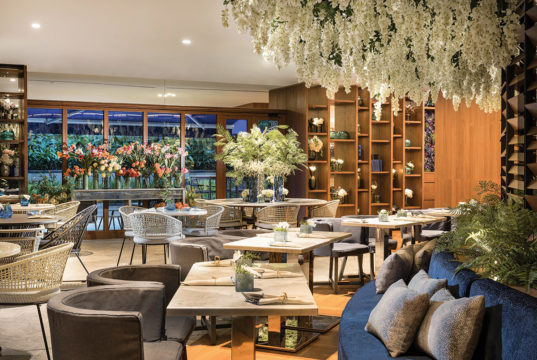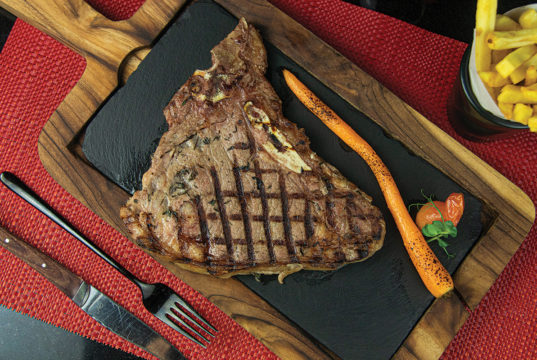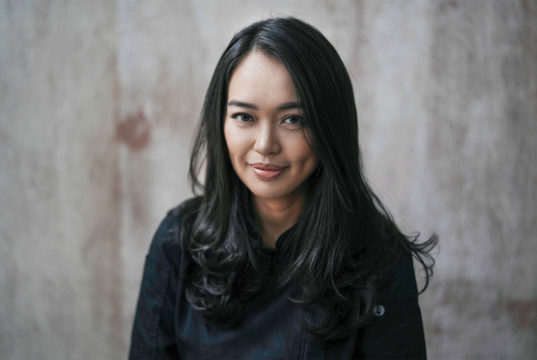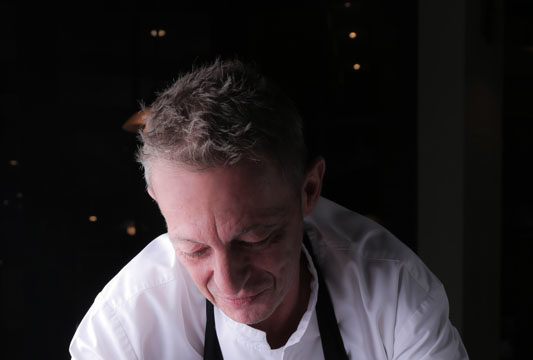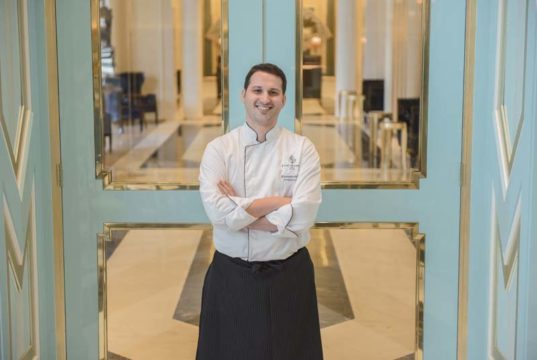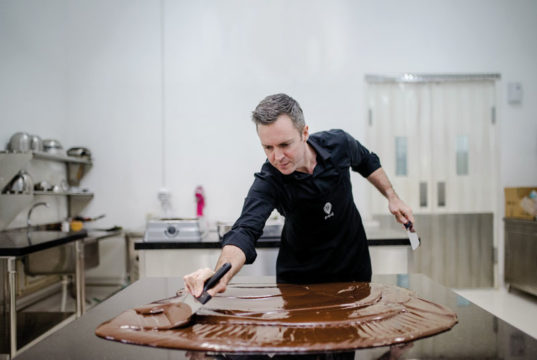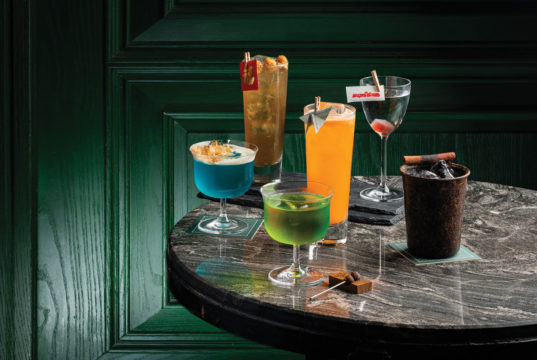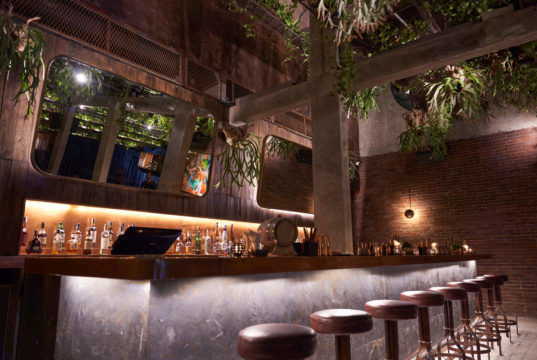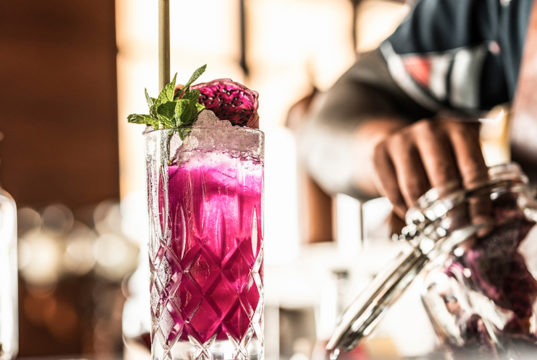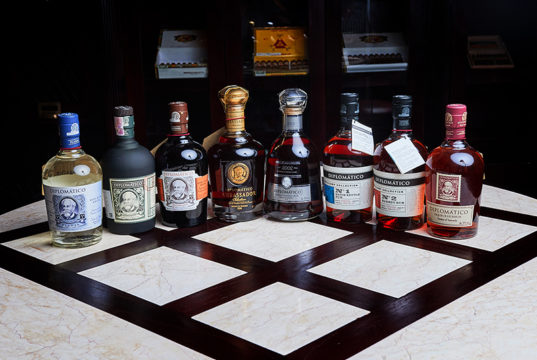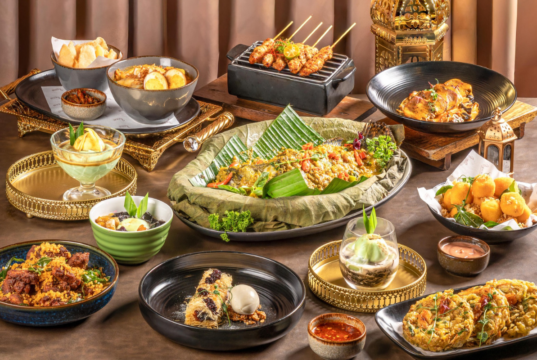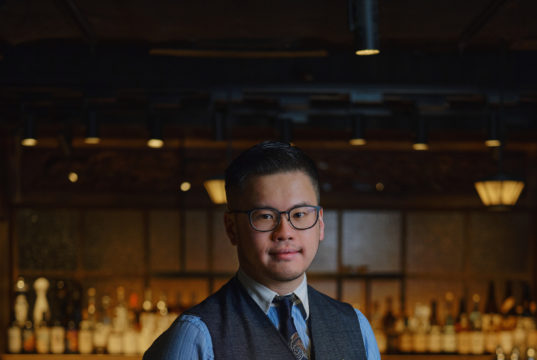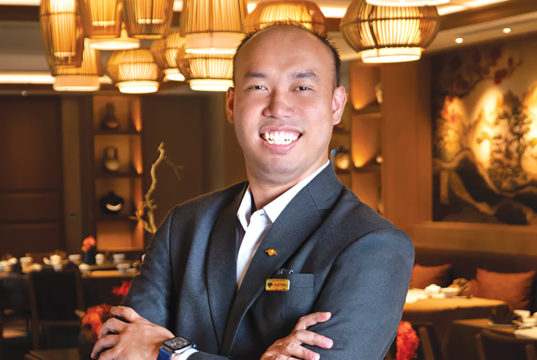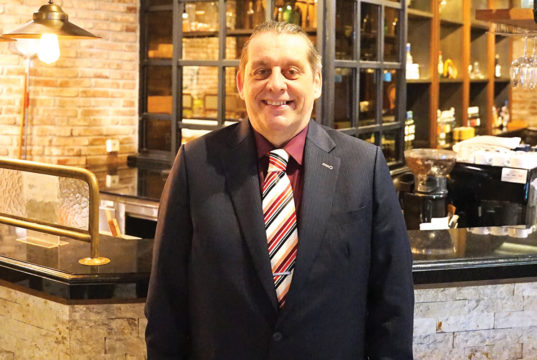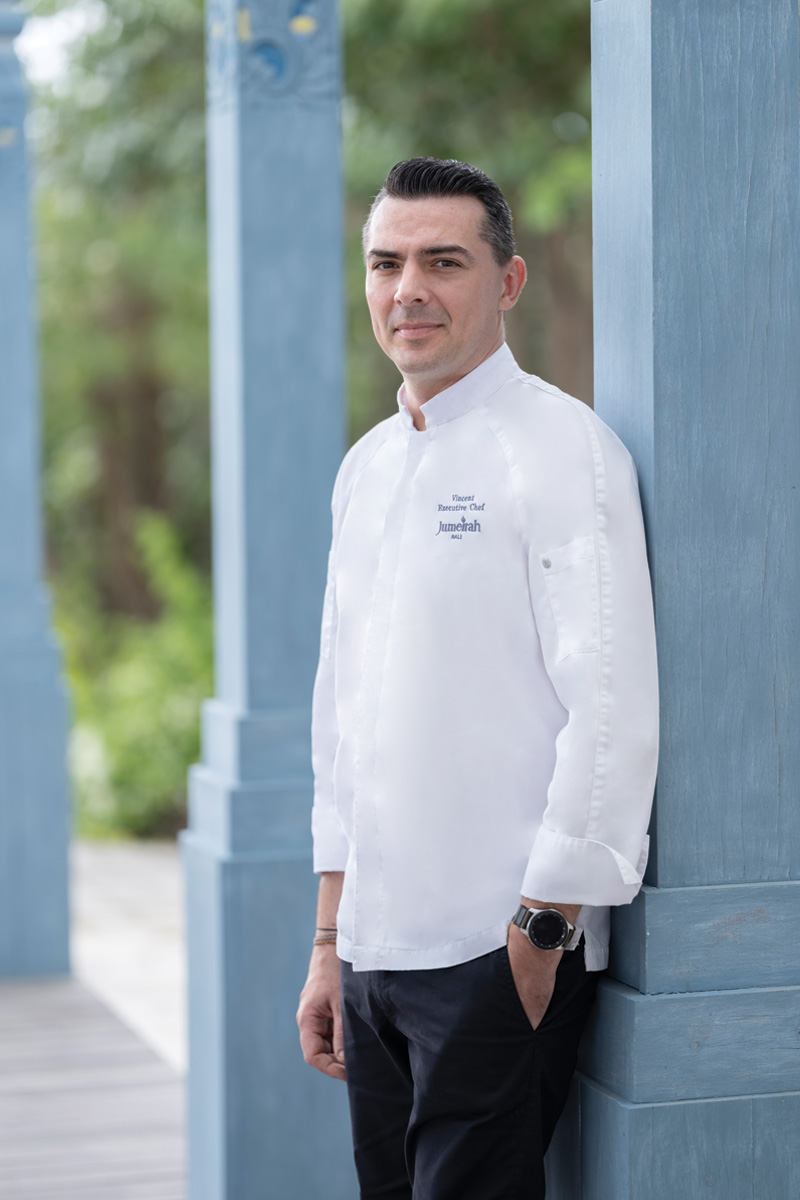
Vincent Leroux has had a passion for culinary since a very young age, and that passion has taken him around the world on a successful career path. Now, as the executive chef of the recently opened luxurious destination Jumeirah Bali, he shares some stories from his journey.
–
by Runi Indrani
E: Can you tell us how you first got into the culinary industry?
A: It has always been my passion. I remember when I was a child, I liked to be in my grandma’s kitchen to finish my papers and stuff from school, and I always smelled the things she cooked. One time, she let me make a recipe, I was six years old. She gave me some mustard, olive oil and vinegar to make a French dressing. She gave me this book and I started to write this kind of recipe; I was really happy and I started to feel really good in the kitchen. I think this is when I first wanted to be a professional in this industry.
E: You lived for quite a while in Hong Kong, what made you decide to move to Bali?
A: First of all, I moved for Jumeirah Bali because it’s Jumeirah, a luxurious, exquisite brand, and I felt that it was a good opportunity for me and for my career. Also, I came on vacation to Bali a few years ago and immediately fell in love with Bali. I was touched by the spirit of the people I met during my trip and by its cultural richness. This island brought me energy and well-being that I had never felt elsewhere. After that, I always told myself that one day I would come and settle here.
E: In terms of culinary offerings, how would you define Jumeirah Bali and what can we expect in the near future?
A: What we’re doing here is sustainability, organic; we have developed our own garden, we work directly with the farmers, we focus on Balinese produce. This is important for the culture and for the ecosystem as well. On the culinary side, we have a restaurant that focuses on seafood with an ocean view, also the flame-grill restaurant Akasa with a nice meat selection directly grilled over firewood.
E: Your career has taken you around the world. Is it difficult to adapt to new surroundings every time?
A: I’m pretty flexible, I just need a few moments to adapt and to understand the language. Understanding the culture is also very important. When I find a good rhythm, I find some people who can explain the culture, this way it’s faster to integrate myself into different cultures. This is especially true in Bali, we really need to understand the different religion, the vision and the people. It’s very exciting. Culture is a very important thing, and here in Bali, there is a very strong culture.
E: What is the biggest challenge you’ve come across in your career, and how did you overcome it?
A: The biggest challenge I faced in my career was teaching French cuisine to students who were fluent in English. When I came to Hong Kong, I had an average level of English, good enough to work in a restaurant with professional chefs. But when you have to pass on all your knowledge in a language you don’t master perfectly to students who speak perfect English, it is a real challenge. With the support of my students and English homework on my side, I quickly improved my English level and felt much more comfortable after several months. Nothing is insurmountable in life, you have to believe in yourself.
E: What about the most memorable or rewarding moment in your career?
A: When I opened and taught a school in Hong Kong, Institut Culinaire Disciples Escoffier, to give young people the opportunity to become a chef. To share knowledge, for me, is the most rewarding part. You share your passion with someone and you see them grow and grow until they become a chef, and you’re very proud of that.
E: Can you introduce Escoffier to those who are not familiar with it yet?
A: Escoffier is a French chef association around the world. The founder, Auguste Escoffier, was the king of the chefs and the chef of the kings. This is why all the French chefs would like to be part of this. It’s a chef organisation where you can share knowledge and help one another.
E: What advice would you give someone who would like to get into the culinary industry?
A: Passion, passion, discipline, passion, discipline, and all the time you really need to be aware and open. The feedback is sometimes good and sometimes not; you need to absorb that and grow with it. It’s quite difficult in our world, everybody can judge everything, professional or not, but if it’s your passion, you need to continue and you’ll be alright, 100 percent.
Jumeirah Bali




